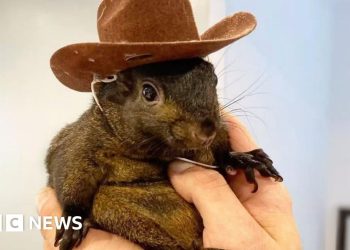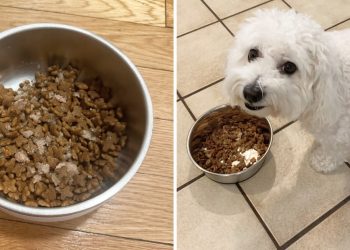SAN DIEGO, CALIFORNIA – The coughing among the western lowland gorillas at the San Diego Zoo Safari Park in January was the first warning sign. Soon the fears were confirmed: A troop of gorillas became the first apes known to test positive for the coronavirus.
Around the world, many scientists and veterinarians are now racing to protect animals from the coronavirus, often using the same playbook for minimizing disease spread among people: That includes social distancing, health checks and, for some zoo animals, a vaccine.
Karen, a 28-year-old orangutan, became the first ape in the world to get a coronavirus vaccine on Jan. 26 at the San Diego Zoo.
Two shots for Karen
Karen has received two shots of a vaccine from Zoetis, a veterinary pharmaceutical company in New Jersey, and has shown no adverse reactions. Since then, nine other primates at the San Diego Zoo have been fully vaccinated: five bonobos and four orangutans. Four more animals — one bonobo and three gorillas — got their first shot this month and will get a second one in April.
“I was really convinced that we wanted to get that to protect our other great apes,” said the zoo’s wildlife health officer Nadine Lamberski, who explained she felt urgency to act after the eight gorillas fell sick.
That virus outbreak was linked to a zookeeper who was infected but had no symptoms. Seven gorillas recovered after a mild cases of the sniffles, but one elderly silverback had pneumonia, likely caused by the…


























































